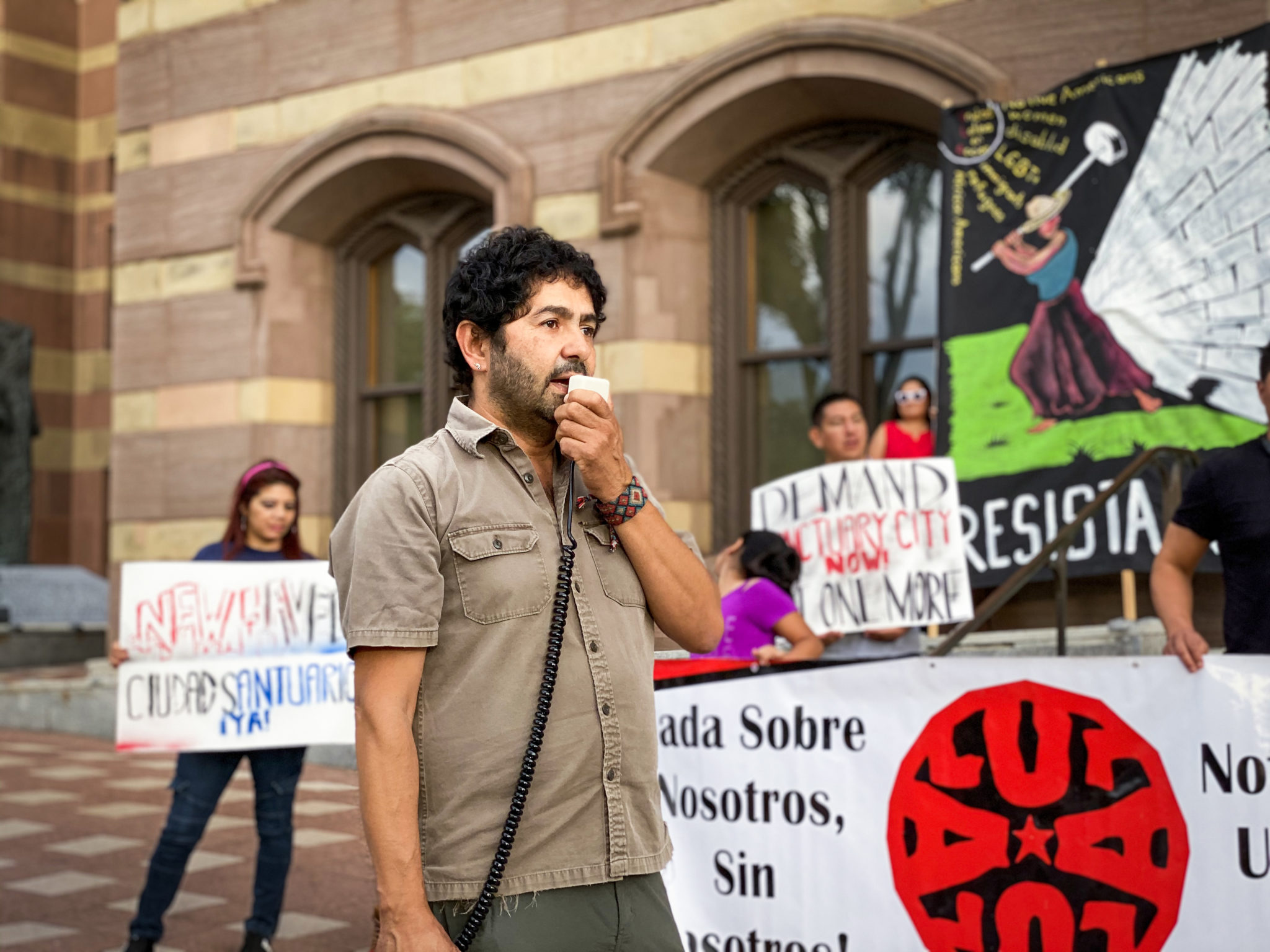
Mackenzie Hawkins
For many members of New Haven’s immigrant community, Monday nights at the People’s Center on Howe Street mark a time for community organization and planning.
Every week, Unidad Latina en Acción (ULA) meets to discuss efforts to increase the security and wellbeing of the Elm City immigrant community. This Monday night, community members gathered to discuss the next steps for a plan already in motion.
Their focus: convincing the Board of Alders to vote on ULA’s proposed sanctuary city ordinance, which currently sits on the aldermanic docket.
“It’s important that we continue to make a big deal about [their lack of action],” John Lugo, ULA organizer, said to the filled room of around 40 organizers, families and students. He spoke to the room in Spanish, which was later translated by the News.
On Lugo and ULA’s list of priorities is the passing of an ordinance that will ensure no future administration can overturn Harp’s executive order strengthening New Haven’s status as a sanctuary city.
New Haven has had a degree of sanctuary protections since 2006, when the New Haven Police Department passed its own policy promising to not inquire about a resident’s immigration status. A year later, Immigration and Customs Enforcement conducted raids of several undocumented residents in New Haven, the last the city has seen.
ULA’s fights for increased immigrants’ rights stretch well through the new millennia. Since being founded in 2002, ULA has actively sought increased protections for immigrants in the Greater New Haven area. In 2007, it was part of the effort to create an immigrant identification card system within the city, which was passed unanimously by the Board of Alders.
In August, Harp signed an executive order strengthening many of the legal protections that fall under the laws of a sanctuary city. Among other things, it has banned city officials from inquiring about the citizenship of New Haven residents and from disclosing any such known information to federal authorities without a resident’s consent.
Conscious of the stakes of prolonged action, particularly in the midst of a Trump presidency, Lugo lamented City Hall’s policy of “overconsultation” with groups that are not related directly to immigrant communities, dragging out the policymaking process.
“[The mayor’s office] wants to keep playing politics,” Lugo told the News. “They want to consult the whole world. But this is a time of emergency, so we need a quicker response.”
Lugo says the organization’s principal fear is that the protections will never make it into law.
ULA has continued to work in conjunction with the Yale Law School-affiliated Workers and Immigrant Rights Clinic, a team of law students that offer legal services to local immigrant and labor groups. The groups hope that the Board of Alders will pass an ordinance to solidify the executive action into law and amend parts of the order they see as faulty and rushed by a Harp administration seeking publicity in the run-up to September’s mayoral primary.
According to a statement Lugo provided the New Haven Independent last week, one important change proposed by ULA and its legal team is the enumeration of the definition of “confidential information.” The inclusion of social security numbers is crucial, they suggested, as it could “possibly be a backdoor mechanism” through which agents could deduce an individual’s immigration status.
Justin Elicker SOM ’10 FES ’10, the current Democratic mayoral nominee, told the News last week he has no intention of retracting Harp’s order should he take office in January.
Members highlighted that their main priority is increasing the sense of safety felt by the immigrant community in New Haven — about a quarter of which are undocumented, according to a 2012 report from Data Haven.
ULA plans to keep up petition efforts citywide to demonstrate public support for the ordinance. Eventually, they plan on presenting them to local Alders, most importantly President of the Board of Alders Tyisha Walker-Myers. As of now, they claim more than 2,000 signatures on the petition and encourage Yalies to sign their names on too.
“We’ve been talking about this at every weekly meeting for the last two years,” said Erick Sarmiento, ULA organizer, “so our goal is to get the laws in place by the end of the year.”
ULA was founded in 2002.
Emiliano Goméz | emiliano.gomez@yale.edu







